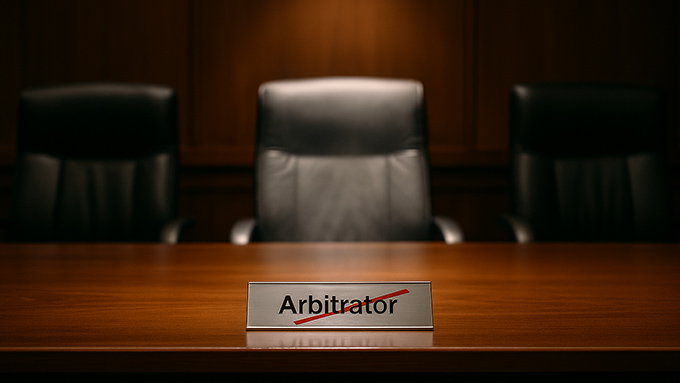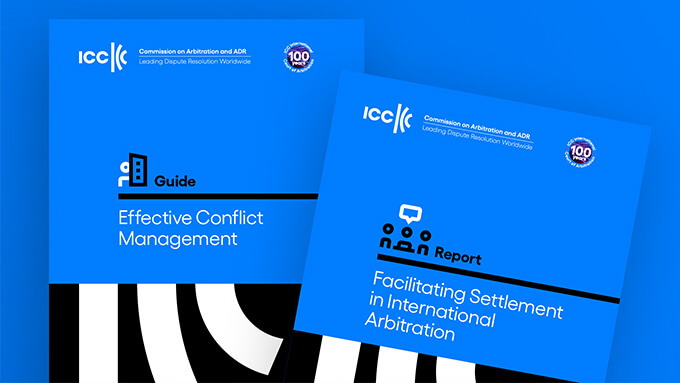Drafting Arbitration Agreements
Introduction
Arbitration agreements are the essential basis of international arbitration. A successful arbitration starts with a successful arbitration agreement. The arbitration agreement reflects the parties’ consent to submit present or future disputes to arbitration. Unsuccessfully drafted arbitration agreements can face enforcement difficulties, IBA Guidelines for Drafting International Arbitration Clauses (“Guidelines”) high and unnecessary costs, and delays. The Guidelines are designated to provide assistance for the drafting of efficient and enforceable arbitration agreements. The Guidelines provide basic and optional rules for the drafting of arbitration agreements, multi-tier clauses, and multi-party agreements.
The arbitration agreement can be in the form of an arbitration clause inserted in the underlying agreement, or in a separate submission agreement.
Basic Guidelines
Wording of the Arbitration Agreement
The arbitration agreement put forward without hesitation the parties’ agreement to settle the dispute through arbitration. The parties should use mandatory language, such as ‘must’ or ‘shall,’ rather than using permissive language like ‘may’ or ‘might.’ It is recommended to use words such as ‘disputes’ or ‘differences,’ as compared to ‘claims.’ The scope of an arbitration agreement will frame the dispute that can be referred to arbitration.
An arbitration agreement would include, all disputes “arising out of,” “in connection with,” or “relating to” the contract. Such broad terms are important to avoid arguments regarding whether the dispute is within the scope of the arbitration agreement. There can be exceptional circumstances where the parties will prefer to exclude various disputes, such as pricing and technical disputes.
Ambiguity should be avoided, primarily to supersede ineffective agreements and to eliminate problematic results, such as enforcement difficulties. It is crucial to understand the parties’ intentions in the arbitration agreement.
Parties Should Decide Between Institutional or Ad Hoc Arbitration
In ad hoc arbitrations, the parties have to choose their arbitrators, or address a procedure for their appointment. The parties should also decide upon procedural rules, place of arbitration, language, etc. The parties can prefer to use already drafted rules such as UNCITRAL Arbitration Rules for assistance.
In institutional arbitrations, in general terms, the chosen institution has the duty to organize the arbitration. The institution provides rules for procedural matters that assist parties[1].
The parties should consider in determining the institution the reputation and trustworthiness, rules of the institution, lists of the arbitrators, as well as powers granted to the institution. The parties should select governing arbitration rules and use the model clause provided in these rules. The preferred arbitration rules will form the procedural scheme. If the parties fail to make such designation, procedural matters have to be included in the arbitration agreement, which is not generally desired. When the parties adopt the model clause recommended by the selected arbitration rules, they can add new points, but should not remove any points. Such new additions shall be parallel with the language of the selected arbitration rules.
The parties are recommended not to limit the scope of disputes, and it is suggested that they draft the scope in broad terms, excluding special circumstances.
Parties Should Select the Place of Arbitration
In making such determination, the parties should consider strategic, practical, and legal criteria. The strategic criteria cover neutrality and effectiveness. In practice, neutrality is guaranteed by selecting the seat of the arbitration to be in a country that is not connected to any of the parties. Effectiveness is related to the enforcement of the award.
Practical criteria highlights comfort, security, practical conditions to carry out arbitration activities, costs, hearing facilities, closeness to the parties, witnesses and evidence, etc.
In general terms, the place of arbitration determines intervention of the courts and applicable procedural law. There is a natural relationship between the “place of arbitration” and the “applicable procedural law.” The applicable procedural law is the law of the place of arbitration unless the parties agree to another procedural law. The parties should be careful when selecting a place of arbitration to consider the procedural law and courts’ position towards arbitration. The place of arbitration, or the seat, is significant in terms of the award. It provides “nationality” to the award. The nationality of the award may be significant for the enforcement of the award, since the New York Convention enables the signatories to make a reciprocity reservation.
The institutional rules generally provide that the award is deemed to be made at the place of arbitration. An award is described as “foreign” when it is rendered in a country different than the country in which it is to be enforced.
In the absence of an agreement between the parties, the place of arbitration is either fixed by the relevant institution or the arbitrators[2]. The place of arbitration, which is a legal concept, does not provide that all procedural acts that include hearings be held in the determined city or country (the seat). The location of hearings may be different. The arbitral tribunal may, after consultation with the parties, conduct hearings and meetings at any location it considers appropriate, unless otherwise agreed by the parties. In ad hoc arbitrations, Article 18 of the UNCITRAL Rules provide a similar approach.
Parties Should Determine the Number of Arbitrators
This selection has an impact on the costs, duration and quality of arbitration. The parties are free to determine the number of arbitrators. Both Articles 8 and 9 of the UNCITRAL Rules, and Article 12(1) of the ICC Rules, provide that the parties can appoint one or three arbitrators.
If the parties fail to make this determination, the arbitral institution (if selected) will decide upon the arbitrators with regard to the complexity and amount of the case. In ad hoc arbitrations, the arbitration rules (if selected) will provide the number of the arbitrators to be appointed. If the parties do not select rules for arbitration, it is important to make this determination in the arbitration agreement. The parties should set the process for selection and replacement of arbitrators. Generally, institutional and ad hoc arbitration rules regulate the methods to select and replace arbitrators.
The parties may elect to adopt another method, such as selecting the presiding arbitrator. It is important that the parties use language similar to the arbitration rules. In ad hoc arbitrations, there is no appointing authority. Therefore, it is important that the parties make such determination.
If the parties fail to designate the appointing authority, the courts at the place of arbitration may make this determination. Pursuant to the UNCITRAL Rules Article 6, the Secretary General of the Permanent Court of Arbitration at The Hague will designate the appointing authority, if the parties fail to do so. An appointing authority can be a court, institution, trade or professional association, or other neutral entity.
Parties Should Determine the Language of the Arbitration
The parties must be careful when selecting multiple languages. Multi-lingual arbitrations can be difficult in practice. It may be a challenge to identify arbitrators who can practice in all of the selected languages. Translations and interpretations will create additional costs and delays. Both Article 19.1 of the UNCITRAL Rules, and Article 20 of the ICC Rules, provide that in the absence of an agreement, the arbitral tribunal shall determine the language of arbitration.
Optional Guidelines
The Authority of the Arbitral Tribunal and the Courts with respect to Provisional and Conservatory Measures
It is rarely regulated in the arbitration agreement. In certain conditions where the availability of provisional and conservatory measures are restricted, the parties can explicitly regulate the authority of the courts and the arbitral tribunal, or decide to modify the applicable arbitration rules.
Document Production
The parties can choose to remain silent on document production, and adopt the provisions set forth in the applicable arbitration rules. The parties can adopt the IBA Rules on the Taking of Evidence in International Arbitration (“IBA Rules”), or can designate their own rules.
Confidentiality
Arbitral proceedings are private, and have the potential to be confidential. In some jurisdictions, confidentiality is regulated; whereas in many jurisdictions, the parties are not under any confidentiality obligations. It may be beneficial to include confidentiality obligations in the arbitration agreement (e.g. trade secrets). It is advisable that the parties not regulate confidentiality in absolute means since, in some instances, disclosure may be necessary for the benefit of one of the parties, or for the enforcement of the award.
Disclosure of confidential information to third parties (such as witnesses or expert witnesses) may also be required and necessary during the preparation of claims, counterclaims and defenses. The parties can prefer to execute a separate confidentiality agreement.
Allocation of Costs and Fees
Arbitrators have wide discretion in terms of cost allocation. The parties may allow the arbitrators to decide on costs and fees, or request that arbitrators make no allocation of costs and fees, or request to allocate the costs on a success basis. The parties should be careful in the wording covering these matters in the arbitration agreement, as the burden concerning these subjects will fall on the party that is unsuccessful.
Parties Can Set Qualifications for Arbitrators
The parties can agree on certain professional experience, nationality, and any other qualifications they deem to be necessary. Excessive qualifications will create difficulties in the selection of arbitrators.
Parties Can Set Time Limits in the Arbitration Agreement
Most of the institutional rules provide time limits. For example, Article 30 of the ICC Rules regulates six months for the arbitral tribunal to render the award with a possible extension. The arbitral tribunal should be allowed to extend these time limits to avoid challenges and enforcement problems.
It is difficult for the parties to ascertain during the drafting period whether a particular resolution can be rendered within specific time requirements. If the award is not rendered within the provided period, there can be enforcement problems.
Finality of the Arbitration
Most of the arbitration rules provide regulations with respect to the finality of the arbitration[3]. If the parties do not choose a set of arbitration rules, it is important to state in the arbitration agreement that the award is final and not subject to recourse. In adding such language, the parties should examine the law of the seat of arbitration to see the scope of the waiver, and the language required under the law of the seat of arbitration.
Conclusion
The will of the parties is the constitutive element of an arbitration agreement. This will should be clear. The selection between ad hoc or institutional arbitration shall be made in accordance with the particularities of the case. In the case of an ad hoc arbitration, it is advised to refer to the rules already drafted (i.e. UNCITRAL Arbitration Rules). In the case of institutional arbitration, it is strongly recommended to use the model clauses proposed by the institution. The guidelines prepared to help a better drafting of the arbitration agreement should be referred to IBA Guidelines. Unless there is a particular need, the arbitration agreement should be kept as simple as possible.
[1] See Article 6 of the ICC Rules.
[2] See Article 18 of the ICC Rules.
[3] See ICC Rules Article 34 (6).
All rights of this article are reserved. This article may not be used, reproduced, copied, published, distributed, or otherwise disseminated without quotation or Erdem & Erdem Law Firm's written consent. Any content created without citing the resource or Erdem & Erdem Law Firm’s written consent is regularly tracked, and legal action will be taken in case of violation.
Other Contents

Emergency arbitration addresses the need for interim protection before the arbitral tribunal is constituted in institutional arbitrations. Arbitral institutions establish short timeframes to ensure parties can obtain interim relief quickly. For example, the International Chamber of Commerce (“ICC”) requires that the emergency...

International arbitration remains the preferred mechanism for resolving complex cross-border disputes. Yet despite its advantages—neutrality, enforceability, flexibility—arbitration is frequently criticized for being too slow, too expensive, and too procedurally heavy. Often, parties proceed through hearings and...

For arbitral awards rendered in international commercial arbitration to produce legal effects in foreign jurisdictions, they must be subjected to proceedings for “recognition” and “enforcement.” This process is governed by the New York Convention as well as by the provisions of the Law on Private International Law...

Arbitrability, the determination of whether a specific subject matter can be resolved through arbitration, constitutes a fundamental aspect of arbitration within the scope of international commercial dispute resolution. This concept draws a delicate balance between party autonomy—a fundamental principle of arbitration...

The recognition, enforcement, and annulment of foreign court and arbitral awards in Türkiye are processes in which public policy emerges as one of the most critical criteria for review, both in theory and in practice. The Court of Cassation decisions determine the direction of case law regarding the scope and...

As is well known, the action for annulment of objection is a special type of lawsuit regulated under Article 67 of the Turkish Execution and Bankruptcy Law No. 2004 (“EBL”). The primary objective of this action is to nullify a debtor’s objection to execution proceedings. Despite its procedural function of facilitating...

On 16 December 2024, the London Court of International Arbitration (“LCIA”) released its third batch of challenge decisions covering the period from 22 July 2017 to 31 December 2022. The LCIA has also issued a detailed commentary that identifies key legal themes and analytical trends, offering practitioners...

The International Chamber of Commerce (“ICC”) has published its report on the dispute resolution statistics for 2023 (“Report”) , shedding light on the evolving landscape of international arbitration...

Syndicated loans undoubtedly hold a significant position among global financing models. In 2023 alone, 3,655 syndicated loans were provided to companies in the US, with their total value reaching USD 2.4 trillion...

Preliminary attachment refers to the temporary seizure of a debtor's assets to secure a creditor's claim. While it serves as a vital instrument for safeguarding the rights of creditors, it is subject to specific and stringent conditions under Turkish law to prevent any potential misuse...

One of the most important reasons for parties to choose arbitration is the opportunity to freely choose their arbitrators. This freedom granted to the parties also distinguishes arbitration from proceedings before state courts, where the parties are deprived of the power to determine the judges who will conduct the...

The 6th Civil Chamber of the Court of Cassation ruled on October 12, 2022, that national courts have jurisdiction over objections to provisional measures in international arbitration disputes...

The declaration of intent to resolve disputes through arbitration is the fundamental constituent element of an arbitration agreement. To speak of a valid arbitration agreement, the parties' intention to arbitrate must emerge in a way that leaves no room for dispute...

In the wake of the evolving dynamics of commercial transactions, the Netherlands Arbitration Institute Foundation (NAI) announced new arbitration rules . 2024 NAI Arbitration Rules are in force as of 1 March 2024 and will be applicable on proceedings filed on or after this date...

With the global shift to online activities, domain names play a crucial role in identifying businesses. It is more common than ever for a domain name to be registered that is confusingly similar to a trademark or service mark...

The ICC Commission on Arbitration and ADR (“Commission”) published a new guide and report with the aim to increase awareness on alternative dispute resolution (“ADR”) mechanisms to prevent disputes and strengthen the relationship between all stakeholders.The Guide on Effective Conflict Management...

Mergers and Acquisitions (“M&A”) are restructuring of companies or assets through various types of financial transactions, such as mergers, acquisitions, purchase of assets, or management acquisitions. This Newsletter article covers M&A disputes being solved before arbitral tribunals.

In the context of arbitration practice, the principle of revision au fond means that the courts can not examine the merits of a dispute when reviewing an arbitral award. This principle is most commonly encountered in set aside and enforcement proceedings. An arbitral award is evidence of the parties’ willingness...

Under Turkish law, parties may agree on the settlement of disputes that have arisen or may arise, regarding the rights that they can freely dispose of, by arbitration. However, disputes which are not subject to the will of parties, such as the disputes relating to in rem rights of immovables, bankruptcy law...

On 4 September 2020, a research project “Does a Right to a Physical Hearing Exist in International Arbitration?” was launched by an International Council for Commercial Arbitration (“ICCA”) taskforce. Due to the Covid-19 pandemic, many arbitration hearings were held online. Many institutional rules...

Dubai International Arbitration Center amended its Arbitration Rules on 25 February 2022. The 2022 Arbitration Rules were published on 2 March 2022 and came into effect on 21 March 2022. The Rules will be applied to arbitrations that are filed after 21 March 2022; unless parties agree otherwise...

In the aftermath of the Achmea decision, controversies on intra-EU arbitrations continue. Most recently, the Paris Court of Appeal has annulled two arbitral awards rendered against Poland. Meanwhile, the Higher Regional Court of Berlin has refused to declare that an Irish investor’s ICSID claim...


Under Turkish law, the legal remedy that can be applied against arbitral awards is an annulment action. Law on International Arbitration No. 4686 (“IAL”) finds its application area in arbitration proceedings where Turkey is the place of arbitration...

It is well known that following a decision of the Court of Justice of the European Union, problems arose related to arbitration of intra-EU disputes, and particularly arbitration under the Energy Charter Treaty...

Arbitration in corporate law contains controversial elements in many respects, especially the issue of arbitrability. Even in legal systems where these disputes are considered to be arbitrable, uncertainties remain on whether an arbitration clause can be included in the articles of...





Arbitration has benifited from a great increase in the use of technology which has directly effected the conduct of proceedings. More particularly, with digitalization, the way that we conduct arbitration proceedings has been changed to reflect the current needs of parties, with an aim of increasing time...
































































